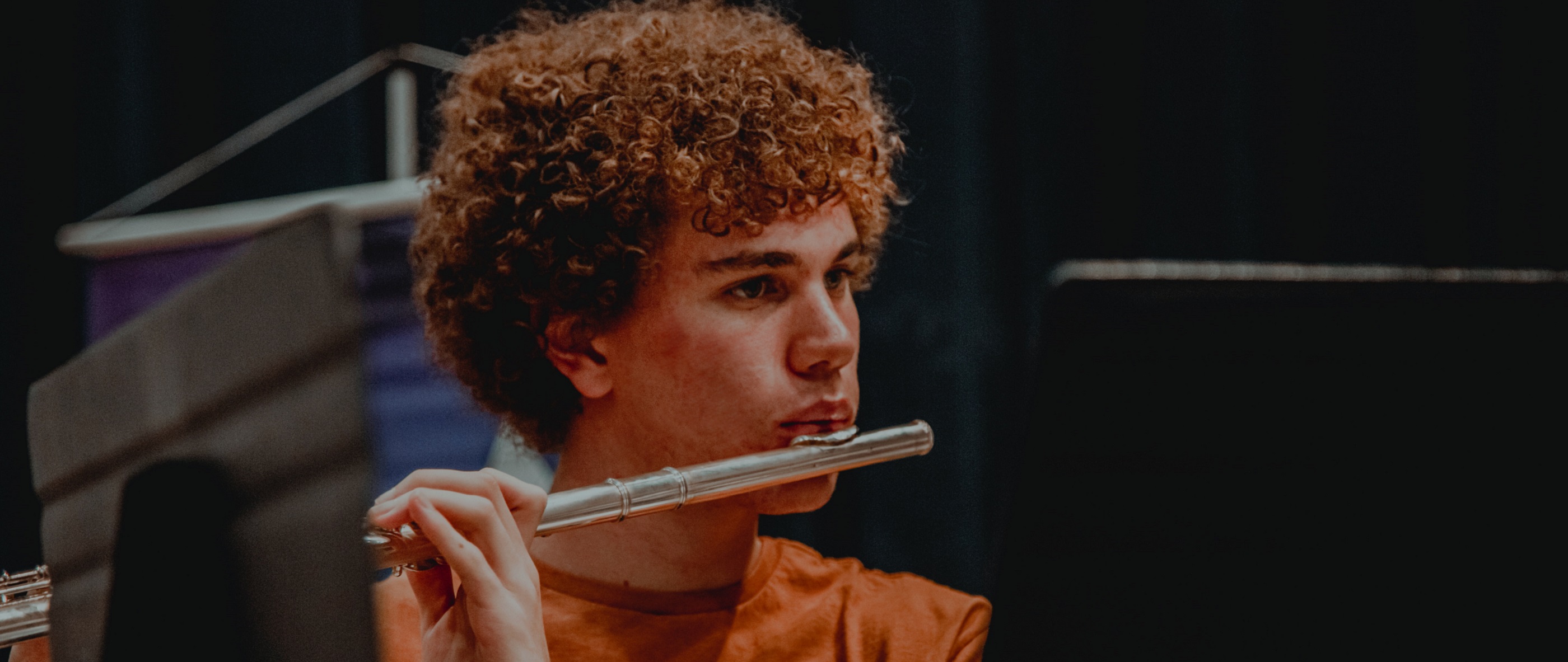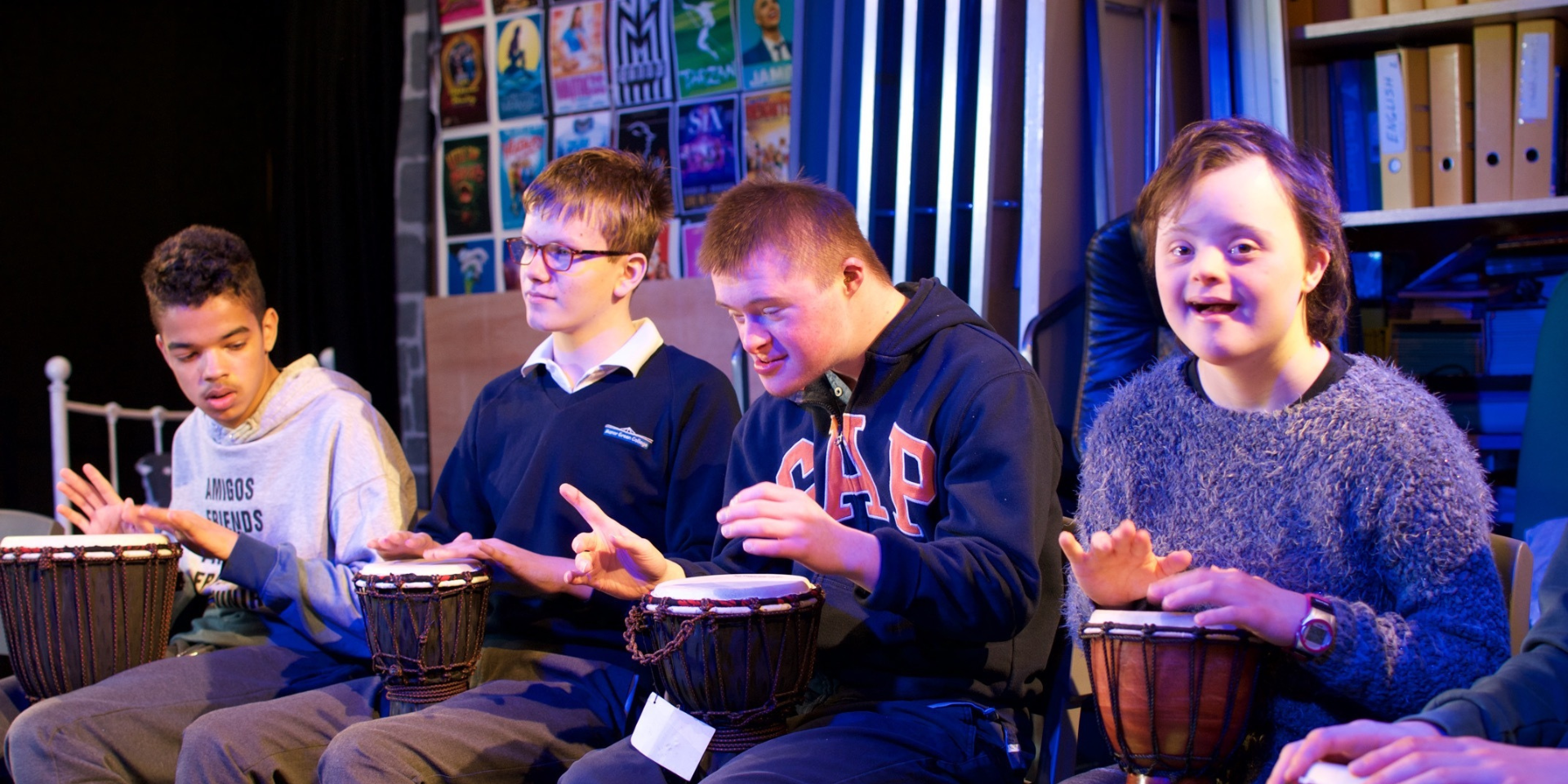
Making progression and assessment accessible to all through drama
BY: Annabel Thomas
01 March 2022
At Trinity, we believe that:
"effective communicative and performance skills are life-enhancing, know no bounds and should be within reach of us all."
The part of our mission statement that is perhaps the most key is "within reach of us all". Which is why we are really excited to share on our blog some of the ways you can make our drama qualifications accessible to as many learners as possible to enable everyone to progress.
Drama educators inherently know the value of performance and allowing young people to express themselves creatively within a supportive environment, and the power that drama and theatre experiences have in unlocking empathy, understanding and so much more. As Trinity Talent nominee, Grace, says:
"The Trinity qualifications are amazing! They have helped to improve my performance skills, but they have also helped me develop into the confident, resilient and motivated person I am today. These exams have acted as a great learning experience for me."
Our previous blog also looked at the wide range of transferable skills that drama provides above and beyond the dramatic and performance skills that our qualifications, and participation in dramatic activities, affords.
Celebrate teamwork and participation
A lesser-known, but still hugely valued, part of the Trinity offer is our Young Performers Certificates, which are designed to develop confidence, group interaction and a sense of achievement in children up to the age of seven.
They encourage young children to develop performance, musical and communication skills as they create and explore stories, songs, roles and situations through the imaginative and integrated use of movement, music, voice and artwork. The Young Performers Certificates are awards, not examinations. The intention is to promote good classroom practice through co-operation and creativity, developing an appropriate child-centred introduction to performance.
This collaborative and supportive approach to assessment means that the Young Performers Certificate is open to all young learners, regardless of any additional needs young people may have, or their individual ability. We are looking for evidence of participation, engagement and teamwork as much as dramatic abilities and, as such, they are an excellent way to boost confidence, increase language skills and improve learning through drama activities.
For young people who may be looking for a step up while still being supported with a cast of fellow performers and creatives (after all, this is one of the best things about theatre!), In Production assessments provide an excellent opportunity for whole casts to be celebrated for their performance. With two pathways, one focusing on performance and the other allowing for technical and backstage theatre skills to be assessed, all candidates are entered for the same grade. Much like Young Performers, we are looking for evidence of the cast working together, even if some take more of a leading role. Everyone has an important part to play and In Production assessments allow for everyone to be recognised for their hard work. More information about our In Production assessments can be found within our Acting, Musical Theatre and Performance Arts syllabuses.
A key feature of all of Trinity's Drama exams is that the content is completely up to the candidate. We don't have any set texts or books to work from so, if you have a candidate obsessed with Hamilton or desperate to dig into a particular Shakespeare text, you can nurture and support their interests.
Our Communication Skills syllabus may also appeal to those learners who may not want to take centre stage, but who would like to benefit from, or enjoy, the opportunity to present on topics they are passionate about - and, yes, just like our other Drama syllabuses, the choice of subject is the candidate's so it can be tailored to their individual needs and interests. Focusing on real-world scenarios and tasks that candidates would come across, these exams provide a measurable progression route in performative communication for all learners, including those interested in public speaking or are avid debaters.
Last but by no means least, our unique Performance Arts syllabus supports candidates to incorporate an extensive range of performance skills - from dance to music, puppetry to circus skills. With no time-bound tasks for Performance Arts digital entry exams, this can also present a supportive digital entry route for candidates who may be nervous to attend a face-to-face exam, or wouldn't respond well to the time pressures of the other Drama grades.
Supporting all candidates to thrive
As well as our flexible and supportive assessment options, we are also passionate about ensuring that we create an inclusive environment where all candidates are able to demonstrate their skills and feel welcomed. We aim to make our examinations as accessible as possible and treat each learner individually when considering how we can achieve this aim, recognising that requirements vary. Our requests for reasonable adjustments can be submitted by any exam applicant and each one is reviewed on a case-by-case basis.
Our Access Fund is also there to support learners who may face a wide range of barriers to engaging with drama and theatre education. The Music & Drama Access Fund has been running since 2020 and has supported many candidates on their musical and dramatic journeys, benefitting them in numerous ways. Our 2022 round has closed for the year; however, keep an eye on the blog for updates on when our next round will open.
Find out more
Our drama assessment options are very varied! Find out more by visiting the Drama pages of our website and our dedicated UK & Ireland support offer available online.
We are passionate about all young people having equal access to opportunities and, if you have supported a young person with additional needs, or someone who has overcome challenges to achieve a Trinity Drama qualification, we would love to hear from you!




Comments & Replies